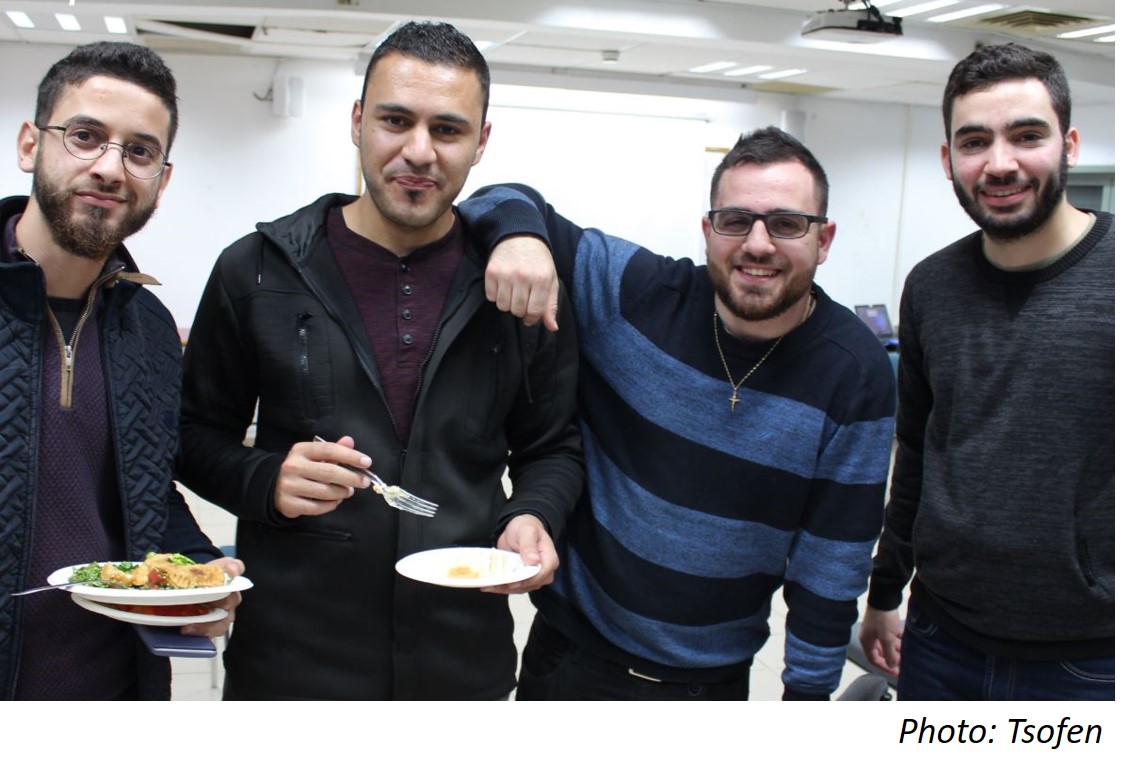 A recent comparison of two surveys of Israelis ages 20-29 about overall personal well-being, both of which included Arabs and Jews and were conducted 14 years apart, found a significant improvement in the emotional state of young Arabs, and that Arabs and Jews rely on different factors to determine well-being.
A recent comparison of two surveys of Israelis ages 20-29 about overall personal well-being, both of which included Arabs and Jews and were conducted 14 years apart, found a significant improvement in the emotional state of young Arabs, and that Arabs and Jews rely on different factors to determine well-being.
The Myers-JDC-Brookdale Institute recently published an infographic report summarizing its comparison of data collected by the Central Bureau of Statistics from surveys in 2003 and 2017 regarding well-being of “young people,” defined as ages 20-29. This group currently comprises 14% of the country’s population, and the report notes that a sense of subjective well-being both affects the decisions they are making that will affect their futures and is shaped by those same decisions.
The comparison of the two surveys showed an overall improvement in subjective well-being among both Arab and Jewish respondents. However, among Arabs, these improvements were in their emotional state, while among Jews these changes reflected a heightened sense of satisfaction with their lives and greater optimism regarding the future.
The Myers-JDC-Brookdale analysis reviewed surveys from 1,738 young people (1,466 Jewish and 272 Arab) conducted by the Central Bureau of Statistics in 2003 and compared them to a similar survey conducted in 2017 among 1,508 young people (1,112 Jewish and 369 Arab). Findings revealed an average 9% increase in the overall number of respondents who replied positively to questions regarding satisfaction with life, as well as economic and general optimism, and a decrease of between 50%-65% in respondents’ sense of depression, loneliness and anxiety. Slight increases were noted in the rate of respondents who reported “feeling energized” and “being able to handle problems.”
Survey responses show a significant improvement in emotional well-being among Arab young people: Among Arab respondents to the two surveys:
- In 2017, 13% reported a sense of stress, a “dramatic decrease” from 48% in 2003.
- In 2017, 8% reported “insomnia-inducing stress,” compared to 23% in 2003.
- While 15% of Arab respondents in 2003 said that they felt depressed, this number was “significantly decreased” to 6% in 2017.
- Almost twice the number of Arab respondents reported feeling “energized”: 59% in 2017 compared with 32% in 2003.
- More Arab young people reported feeling they “are able to handle problems” – 69% in 2017 compared with 51% in 2003.
- In comparison, the percentage of young Jews who reported a sense of stress and depression remained practically unchanged over the course of the 14 years between the two surveys. For Jewish respondents, improvement in their sense of personal well-being stemmed primarily from their overall satisfaction with their lives and prospects.
 A recent comparison of two surveys of Israelis ages 20-29 about overall personal well-being, both of which included Arabs and Jews and were conducted 14 years apart, found a significant improvement in the emotional state of young Arabs, and that Arabs and Jews rely on different factors to determine well-being.
A recent comparison of two surveys of Israelis ages 20-29 about overall personal well-being, both of which included Arabs and Jews and were conducted 14 years apart, found a significant improvement in the emotional state of young Arabs, and that Arabs and Jews rely on different factors to determine well-being.